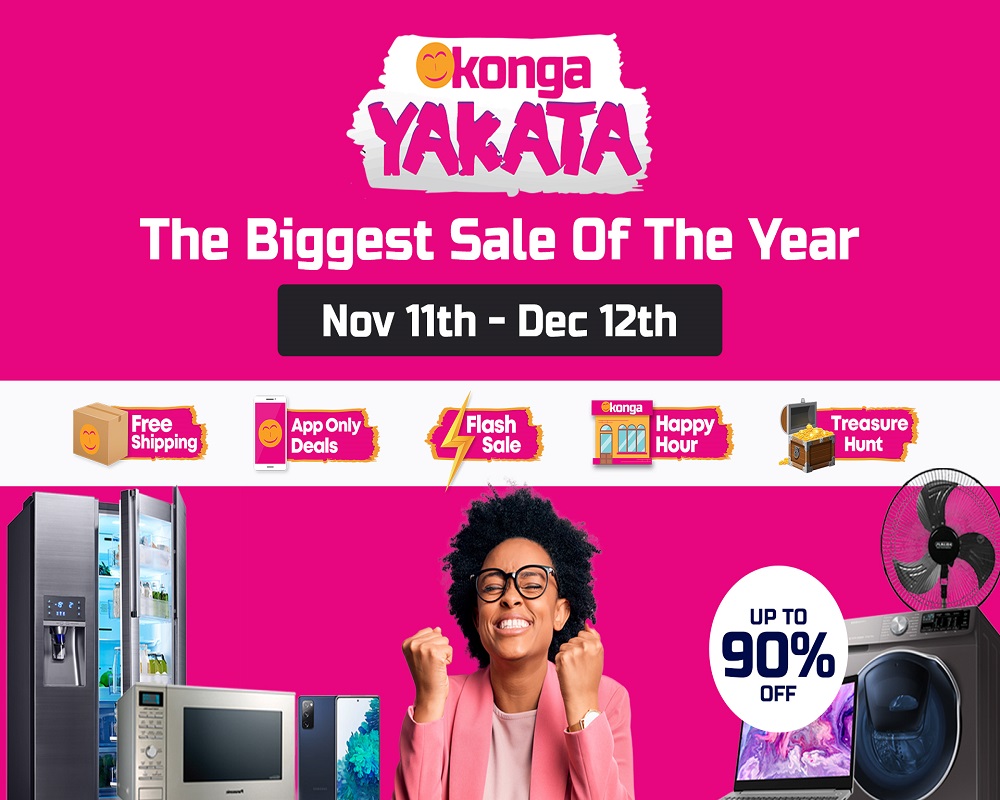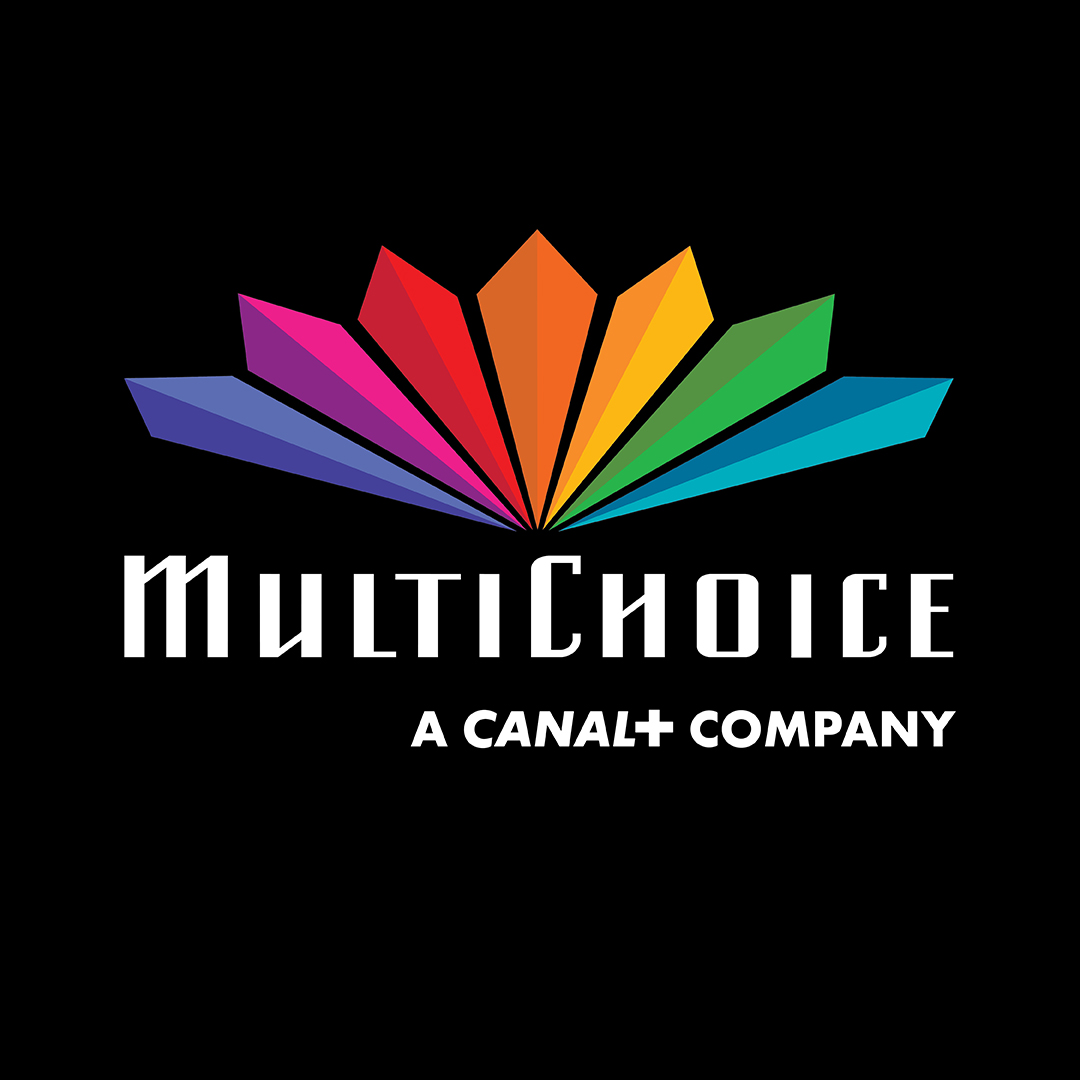Broadcasting
Konga, Access Bank Partner to Feed Thousands, Offer 10% Discount to Card-holder Donors, Shoppers

Konga, Nigeria’s leading e-commerce giant and Access Bank Plc, foremost financial institution, have announced plans to support the free delivery of discounted, high quality essential food items to millions of Nigerians in a move targeted at putting smiles on their faces this festive season.

The project, a humanitarian initiative will be executed under the auspices of Konga Kares, the Corporate Social Responsibility (CSR) arm of the Konga Group, through which it has identified with and empowered critical segments of the population in need of a helping hand.
Through this partnership, interested and public-spirited Nigerians at home and in the Diaspora can donate to friends, families, the less privileged and communities of their choice across Nigeria. Access Bank Plc., sole partners on this project, will subsidize the cost of free delivery of these food items to the last mile beneficiaries across Nigeria.
The food items have gone live for purchase in dedicated gift bundles on the Konga website – www.konga.com/content/kongakares – effective Thursday, November 11, 2021, coinciding with the commencement of this year’s annual Konga Yakata, widely regarded as the biggest sale event in the annual shopping calendar.
Konga will oversee the logistics and deliveries of the food items to the nominated beneficiaries of the donors. Donations end on Sunday, December 12, with Konga committing to ensure delivery to all beneficiaries on or before Saturday, December 20, 2021.
Specifically, the food items are available in four categories on the Konga website. They include small bundle (10kg bag of rice and 2 litres cooking oil for N7,949); medium bundle (25kg bag of rice and 3 litres cooking oil at N16,699); large bundle (50kg bag of rice and 5 litres cooking oil for N30,349) and mega bundle (two units of 50kg bag of rice and two units of 5 litres cooking oil at N59,999).
Equally important, Access Bank is offering an additional 10 per cent discount to donors who pay for purchases with their debit card. This offer cuts across donors who wish to purchase and donate gift bundles as well as purchases made by card holders who shop on Konga Yakata.
Furthermore, interested donors can also make cash donations to the needy via KongaPay, a Central Bank of Nigeria (CBN)-licensed mobile wallet through their existing accounts or by signing up at www.kongapay.com.
‘‘We are fast approaching the festive season, a period of merriment for many. But we understand that the reality may be different for some of our brothers and sisters across the country, many of whom may not even have food to eat,’’ disclosed Gideon Ayogu, Head, Corporate Communications, Konga Group in a chat with newsmen.
‘‘As a result, we have partnered with Access Bank Plc. under the Konga Kares programme to support the free delivery of food items to needy beneficiaries across Nigeria. Interested Nigerians at home and in the Diaspora can take advantage of this initiative to purchase these food items as gift bundles at www.konga.com/content/kongakares and donate to beneficiaries of their choice. You can donate to as many as you wish simply by adding their delivery addresses or locations while making payments online.
‘‘This is our own little way of giving back and putting smiles on the faces of many around us, while also ensuring that they share in the joys of a memorable festive season,’’ he added.
Also addressing newsmen during the media briefing, Chioma Afe, Group Head, Retail Marketing & Analytics, Access Bank Plc., revealed that the additional 10 per cent discount for Access Bank card holders represents a unique opportunity for interested participants to make huge savings.
‘‘For Access Bank card holders, it is also a useful opportunity to make great savings through the additional 10% discount offer we are extending exclusively to them.
“This discount can be enjoyed when you purchase a gift bundle or bundles to donate or when you shop on Konga Yakata.
‘‘It is important, however, to mention that the offer is valid, subject to the availability of the lump sum dedicated to the discounts. Non-card holders are advised to hurry and get their Access Bank cards now in order not to miss out on this mouthwatering offer,’’ she stated.
Purchase and donation of the gift bundles for the Konga Kares CSR partnership commenced on the Konga website on Thursday, November 11 and expected to end on Sunday, December 12, 2021, with all donations billed to reach their beneficiaries latest by Monday, December 20, 2021.
Meanwhile, Konga and Access Bank will equally collaborate in supporting the donation and free delivery of used but decent clothing items to the needy – in an offshoot of the current CSR initiative – in January 2022.
Broadcasting
Tim Akano Recounts 20-Year Growth, Media Support at NITRA End-of-Year Meet

Mr. Tim Akano, New Horizons Chief Executive Officer, took centre stage at the Nigerian Information Technology Reporters’ Association (NITRA) annual end-of-year meeting on Thursday, December 18, 2025, recounting the company’s remarkable growth and reaffirming free IT training for journalists.

Tim Akano, New Horizons Chief Executive Officer, in a group photograph with NITRA Members
Speaking directly to IT media members at the company’s training facility in Lagos, Akano acknowledged the critical role journalists played in supporting New Horizons during its formative years two decades ago.
He detailed how the firm evolved from a handful of staff to one of Africa’s leading ICT skills training organisations, now employing about 500 staff across multiple training centres nationwide.
Akano Spotlights Youth Training, University Partnerships
Akano highlighted that New Horizons has trained over 500,000 youths, particularly tertiary institution students, equipping them with practical IT skills essential for Nigeria’s digital economy.
He announced recent partnerships with universities, including a new agreement with Afe Babalola University, to scale hands-on training programmes for students.
“This growth would not have been possible without the media’s support in documenting our journey,” Akano stated, pledging continued free IT skills training for media members to remain competitive in the evolving digital landscape.
Reciprocal Support Defines Long-Standing Partnership
The venue hosting the NITRA meeting underscored Akano’s generosity; NITRA Secretary Chidiebere Nwankwo secured the free facility after contacting him—a gesture consistent with New Horizons hosting multiple association events and training IT journalists since its inception 20 years ago.
Participants shared personal testimonies of Akano’s support, including veteran journalist Aaron Ukodie, whose daughter—an Accounting graduate from the University of Johannesburg—received NYSC placement and IT scholarship at New Horizons.
The Guardian’s Yemi Adeyemi recounted Akano accommodating his editor’s child for mandatory IT training after other firms declined.
Members praised Akano’s commitment to human capital development as evidence of deep appreciation for the media community that chronicled New Horizons’ success over two decades.
Broadcasting
NIMC rolls out Pre-Enrolment Portal for seamless NIN registration

National Identity Management Commission (NIMC) has launched the NIMC Pre-Enrolment Portal to revolutionise the National Identification Number (NIN) enrolment process, enabling applicants within Nigeria and in the Diaspora to capture biodata online prior to biometric verification at enrolment centres.

NIMC
Accessible via penrol.nimc.gov.ng, the platform allows users to fill enrolment forms, schedule appointments, upload supporting documents securely, and manage personal details directly, thereby slashing congestion, minimising wait times, boosting data accuracy and enhancing overall service efficiency at centres nationwide.
NIMC Director-General and CEO, Engr. (Dr) Abisoye Coker-Odusote, spearheaded the initiative as part of the Commission’s technology-driven strategy to fortify institutional performance, aligning with President Bola Ahmed Tinubu’s Renewed Hope Agenda that emphasises digital transformation, efficient public service delivery and inclusive national development.
Dr Kayode Adegoke, Head of Corporate Communications, highlighted key benefits including simplified biodata handling, confidential data protection through robust security measures, reduced physical centre visits and heightened operational effectiveness, urging all prospective enrollees to adopt the portal for a faster, citizen-friendly experience.[conversation_history]
The move underscores NIMC’s mandate under the NIMC Act No. 23 of 2007 to manage the National Identity Database, issue NINs and foster a reliable digital identity ecosystem vital for national planning, with users advised to complete pre-enrolment online before heading to selected centres for biometrics.
Broadcasting
MultiChoice Talent Factory Calls for Entries Into Fully Funded Film Training Programme

MultiChoice Talent Factory (MTF), a Pan-African film and television training institution, has announced the opening of applications for its 2026 intake.

MultiChoice
The fully funded programme is open to African graduates aspiring to become directors, filmmakers, scriptwriters, producers and storytellers.
According to MultiChoice, the nine-month accredited curriculum combines online learning with intensive in-person training, and is designed to balance theoretical knowledge with practical immersion.
MTF academies are located in Kenya, Nigeria and Zambia, and serve aspiring filmmakers from 14 African countries. Since its inception in 2018, the initiative has trained 296 filmmakers, with graduates producing more than 42 movies aired on DStv, GOtv and Showmax platforms.
Organisers said alumni of the programme have gone on to establish over 50 production companies, while many continue to work within the MultiChoice ecosystem.
Graduates have also won accolades at the Africa Magic Viewers’ Choice Awards, Kalasha Awards, Uganda Film Festival and Women in Film Awards.
Applications for the 2026 intake close on Feb. 27, 2026. Interested candidates can visit https://apo-opa.co/3XW53oE for programme requirements.

 News2 days ago
News2 days agoUS Okays $2.1Bn for Christian Healthcare in Nigeria

 General News3 days ago
General News3 days agoThe Mood Market to Light Up Lagos with a Rooftop Gifting, Food & Lifestyle Fair this Christmas

 News2 days ago
News2 days agoSERAP Asks Tinubu to Release CTC of Tax Bill

 Broadcasting2 days ago
Broadcasting2 days agoTim Akano Recounts 20-Year Growth, Media Support at NITRA End-of-Year Meet

 E-Financial2 days ago
E-Financial2 days agoSterling Bank, Water.org, Sterling One Foundation Partner on WASH Loan for Millions

 General News2 days ago
General News2 days agoLeo Stan Ekeh: A “Rare Avis”, an Unconquerable Entrepreneur

 News1 day ago
News1 day agoUS Begins Partial Visa Ban on Nigerians January 1

 General News2 days ago
General News2 days agoFCCPC Forces Ikeja Electric Into Compliance, Unseals Headquarters After Rights Breach



























